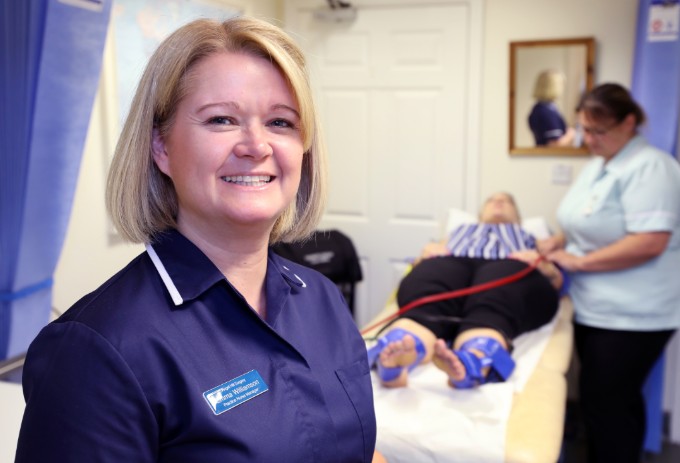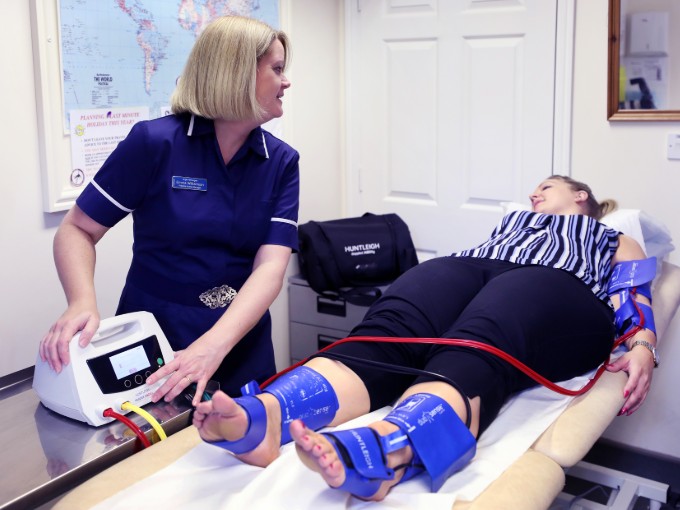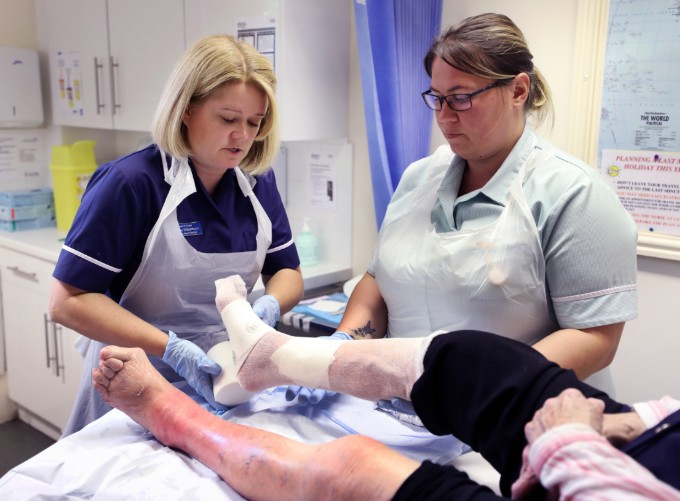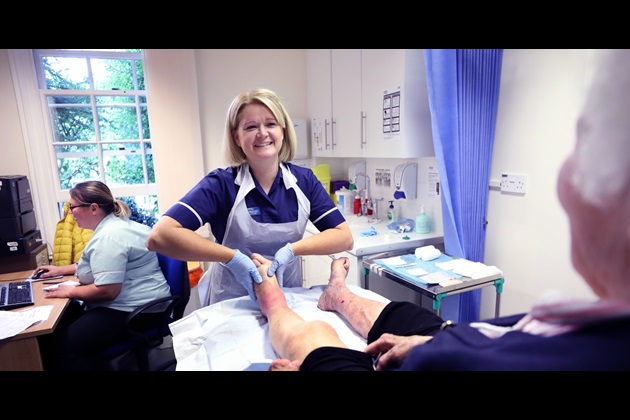Emma takes us inside the holistic clinic that's speeding healing and saving nurses' time
“The target is to have all patients with below-the-knee wounds healed within 12 weeks,” says Emma Williamson, Practice Nurse Manager at Angel Hill Surgery in Bury St Edmunds. “With the changes we’ve made, all but three of the wounds we’ve treated have been healed within six weeks.”
Emma, winner of the wound prevention and treatment category of the 2019 RCNi Nurse Awards, developed a holistic clinic that’s accelerated wound healing times.
Her initiative addresses medical and lifestyle factors that could prevent a patient’s wound from healing, catching issues as early as possible.
After less than a year, patients are being discharged faster than ever and nursing staff have 16 extra hours a week to dedicate to other tasks.

Emma began by looking at RCN and NICE guidelines on best practice for wound care treatment, reviewed evidence and spoke to district nurses. She then created a comprehensive checklist to guide practice nurses through a one-stop clinic.
It covers medical factors such as measuring the wound, treating oedema and pain, taking swabs to check for infection, checking markers for diabetes and taking bloods to look for dehydration. Nurses then tackle lifestyle factors, referring patients to pre-diabetic, smoking cessation and exercise programmes as necessary. They also assess footwear and fall risk.
“You need to put in a bit of extra time with each patient at the beginning but that more than pays off with the end results,” explains Emma.
You need to put in a bit of extra time with each patient at the beginning but that more than pays off with the end results
The evidence also convinced Emma that a more efficient way to perform Doppler tests would bring huge benefits to patients and nurses. She requested funds for a Huntleigh Doppler machine (pictured below), which allows one nurse to perform the test in 10 minutes, rather than two nurses in 30 minutes for the standard Doppler the practice already owned.

Swift Doppler testing allows nurses to check whether patients can receive compression bandaging, a measure that can speed up wound healing.
“The main stumbling block is the cost of the Doppler machine,” Emma says. “I managed to convince the partners that with what we would save on nursing time it would be worth the investment – within the first few months it had paid for itself.”
Alongside the one-stop clinic, which the surgery now runs one day a week, Emma found other ways to improve wound care.
“Training for practice nurses wasn’t available locally to us,” she says. “I pushed for us to be eligible for a two-day leg ulcer training course and arranged for patients to go to a local pharmacy to be measured for stockings. That’s saved us time, and patients are saying the stockings are comfortable and they’re actually wearing them.”

The efficient use of stockings and reduction in dressings needed means that from August 2018 to November 2018 the surgery’s monthly spend on general supplies dropped by more than £1,000.
The success of the clinic has interested other local GP practices and Emma is keen to widen use of the model. “What’s really great is that anyone could implement these changes,” Emma says. “They’re things that we all do every week, but it’s just putting them all in one checklist.”
Get involved and share best practice
Emma is a member of the General Practice Nursing Forum, which provides a channel for RCN members to share best practice and contribute to developments in the specialty. Members can join up to three RCN forums free of charge. Find out more and join today.








